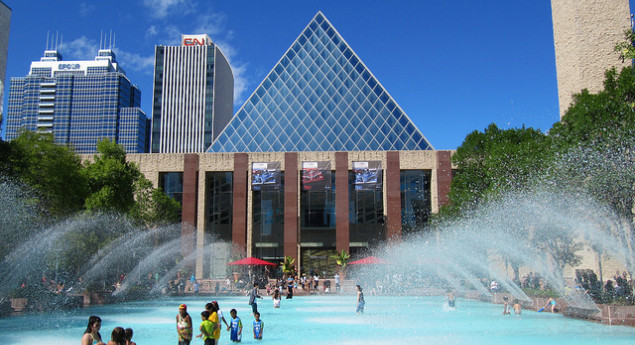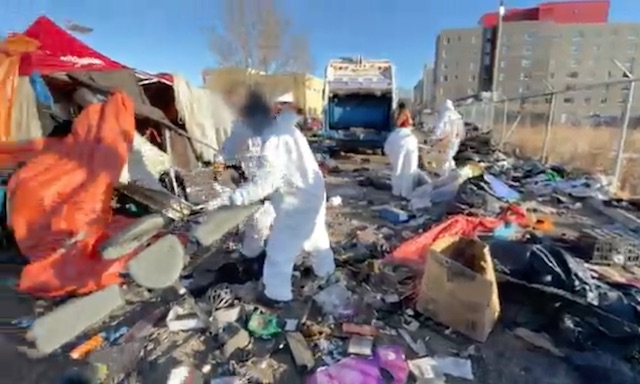City of Edmonton
Edmonton City Council deactivates face coverings bylaw – Masks come off July 1!

|
|
Alberta
Province forms Edmonton Public Safety Cabinet Committee in response to homeless encampment crisis

Edmonton encampments: Deputy Premier Ellis
Deputy Premier Mike Ellis issued the below statement in response to Edmonton Mayor Amarjeet Sohi’s announcement of his intention to declare an emergency:
“In November, Premier Danielle Smith ordered that an emergency cabinet committee be created and convened in response to the issue of crime and gang-related activity within encampments across the City of Edmonton.
“Alberta’s government cares deeply about vulnerable Edmontonians and we will always ensure that anyone who wants shelter and supportive services will receive it. However, we will not stand by and watch as vulnerable Albertans and the general public continue to be extorted, taken advantage of and killed by gangsters and deadly drugs.
“The Edmonton Public Safety Cabinet Committee (EPSCC) is comprised of ministers from departments that oversee operations and/or administer programs that promote public safety and support the transition of Edmonton-based encampment residents into safe, secure and appropriate arrangements.
“The cabinet committee membership includes:
- Danielle Smith, Premier (chair)
- Mickey Amery, Minister of Justice
- Mike Ellis, Minister of Public Safety and Emergency Services
- Adriana LaGrange, Minister of Health
- Ric McIver, Minister of Municipal Affairs
- Jason Nixon, Minister of Seniors, Community and Social Services
- Searle Turton, Minister of Children and Family Services
- Dan Williams, Minister of Mental Health and Addiction
- Rick Wilson, Minister of Indigenous Relations
“Also sworn into the committee are:
- Cody Thomas, Grand Chief, Confederacy of Treaty Six First Nations
- Dale McPhee, Chief, Edmonton Police Service
“This committee has met continuously since its initial meeting on Nov. 29, 2023, to plan a joint response. Our government is working on an action plan alongside Alberta Health Services, Edmonton Police Service, the Confederacy of Treaty Six First Nations and several departments from the City of Edmonton, including Edmonton Fire Rescue Services.
“Our government will continue to respond to these issues following the expected court decision on Jan. 16, no matter the outcome. We will have a more detailed statement regarding this response once the court decision is made.”
Additional quotes
“It is dangerous for the mayor and others to continue to suggest that vulnerable Albertans do not have anywhere to turn. This is false and will lead to more folks choosing not to seek out shelter because they fear they’ll be turned away. I have said before and will continue to say: there is safe space in shelters around the city and nobody will be turned away. We have more than enough room for every homeless person in the city of Edmonton to have a warm, safe place to stay. It is completely inappropriate and dangerous for the mayor, or anyone, to suggest Edmonton is out of capacity in our social services sector or our emergency shelter systems. Anyone needing shelter space will be kept care of.”
Jason Nixon, Minister of Seniors, Community and Social Services
“I have been working and will continue to work diligently alongside the provincial government, in the spirit of reconciliation, for months on the serious action that is needed to get all people off the streets, including First Nations people. Encampments are not a safe place and letting people overdose and freeze in the cold is not reconciliation.”
Cody Thomas, Grand Chief, Confederacy of Treaty Six First Nations
Alberta
City of Edmonton shuts down eighth homeless encampment after insuring space for occupants in warm shelters

New release from the City of Edmonton
|
|
-

 Alberta13 hours ago
Alberta13 hours agoCOWBOY UP! Pierre Poilievre Promises to Fight for Oil and Gas, a Stronger Military and the Interests of Western Canada
-

 Alberta1 day ago
Alberta1 day agoAlberta Next: Immigration
-

 Alberta13 hours ago
Alberta13 hours agoAlberta and Ontario sign agreements to drive oil and gas pipelines, energy corridors, and repeal investment blocking federal policies
-

 Business2 days ago
Business2 days agoThe Digital Services Tax Q&A: “It was going to be complicated and messy”
-

 International2 days ago
International2 days agoElon Musk forms America Party after split with Trump
-

 COVID-1916 hours ago
COVID-1916 hours agoFDA requires new warning on mRNA COVID shots due to heart damage in young men
-

 Crime13 hours ago
Crime13 hours agoEyebrows Raise as Karoline Leavitt Answers Tough Questions About Epstein
-

 Alberta Sports Hall of Fame and Museum1 day ago
Alberta Sports Hall of Fame and Museum1 day agoAlberta Sports Hall of Fame 2025 Inductee Profiles – Para Nordic Skiing – Brian and Robin McKeever



